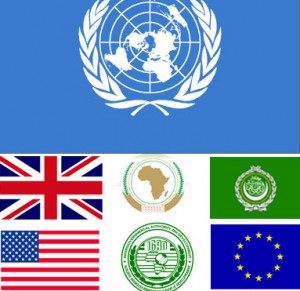International partners welcome the successful conclusion of the state-formation process for the new HirShabelle Administration


Joint Press Statement
Thursday, October 20, 2016
Mogadishu, 20 October 2016 – The United Nations, African Union Mission in Somalia, European Union (EU), Inter-Governmental Authority on Development (IGAD), Ethiopia, Italy, Sweden, and the United Kingdom welcomed the successful conclusion of the state-formation process for the newly-formed HirShabelle Administration and congratulated President Ali Abdullahi Osoble and Vice President Ali Abdullahi Hussein as they take up their heavy responsibilities.
Somalia’s international partners acknowledged the Federal Government’s efforts to advance the state-formation process, as well as the important facilitation role played by IGAD in this process.
International partners encourage the new administration of Hirshabelle to reach out to groups that were not part of the state-formation process and ensure that the interests of all communities are protected. This should be taken into account in the electoral process by inclusive representation in both houses. Reconciliation across HirShabelle is critical at this stage.
International partners urged the new HirShabelle authorities to now focus on the electoral process for Somalia’s Federal Parliament. The new Administration has an opportunity to show leadership by abiding to the rules and procedures agreed by the National Leadership Forum and called on them to ensure that at least 30% of the seats allocated to HirShabelle in both the Upper and Lower Houses of Parliament are reserved for women.
International partners called on the new administration to make every effort to ensure that the process results in the designation of reputable holders of public office who will not undermine the legitimacy and credibility of the new Government and Parliament.
“Welcome to HirShabelle – Soo dhowoow” said SRSG Michael Keating. “The international community is ready to support the new administration as it sets its agenda for its citizens and develops the institutions to meet their needs”.




